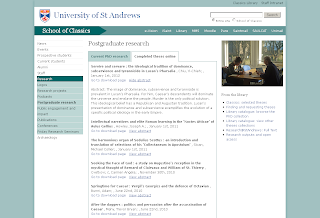Over the years, the OARPS team has spent a great deal of time acquiring academic manuscripts and releasing them to the world through the repository.
Much of our current work involves assisting academics with complying with funder open access mandates. For instance, the RCUK mandate states that RCUK funded research papers should be made Open Access either by choosing "Gold" and paying an APC charge, or by choosing "Green" and uploading the accepted manuscript of the final article to Pure (and then the library can transfer the paper to the repository).
Presently, the team focus has incorporated the new
HEFCE open access policy for the next
REF as well. The HEFCE open access policy states that in order to be eligible, the accepted manuscripts of articles and conference proceedings (with an ISSN) must be deposited in a repository. The HEFCE open access policy does not come into effect until 2016, but we are tying to push the message now so that we are 100% compliant by that point.
With both these cases the result is more content in the repository. But with deposit being imposed from on high the other benefits of depositing can sometimes play second fiddle. In light if this, we have chosen to show some of the usage metrics from a recent article in the repository. We hope this demonstrates that archiving in the repository can greatly benefit the
Impact of research.
A great example is
The meanings of chimpanzee gestures which received a lot of media attention when it was published. The authors deposited the accepted manuscript for the article into Pure, which then allowed the OARPS team to get the manuscript into the repository.
Here are some of the repository usage stats for the article:
With statistics like this you have to read between the lines a little bit, but one thing they definitely show is that the article received a lot of attention in July (this was when the article was being covered in the media). Crucially, the stats also tell us that the vast majority of those visiting the page ended up downloading the document. This reliably indicates that the majority of people visiting the page did not have access to the publisher version.
So, with the manuscript in the repository a wider range of people, who do not have a subscription to the journal, can read the full article. This means it can be distributed more widely through society, thus widening the reach of the paper and helping to feed the impact of the research.



















